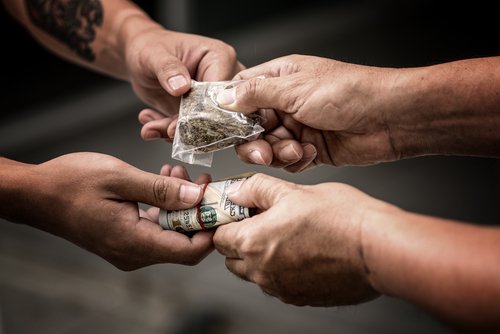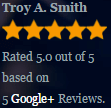When it comes to drug-related crimes, drug distribution is one of the most serious charges. Facing drug distribution charges can be intimidating. You might not know what to expect or how to handle the situation. Fortunately, the situation isn’t as bad as you might think. There could be a way around a conviction. Find out everything that you should know about drug distribution charges and fighting a conviction.
What Is Drug Distribution?
When a police officer believes that you are selling, transporting, or importing an illegal controlled substance, then he can charge you with drug distribution. Some of the possible drugs that could result in your arrest are the following:
- Heroin
- Cocoaine
- Marijuana
- Methamephetamines
- Prescription drugs, like opiates, that you sell illegally
However, there is a long list of illegal controlled substances. As new drugs come out on the market, that list continues to grow. Many states classify drugs by their perceived threat. For example, cocaine and methamphetamines are often classiffied as the most dangerous controlled substances. If your arrest involved cocaine or methamphetamines, then the court could consider your charges as serious. Meanwhile, the distribution of a less “dangerous” drug would result in a less severe penalty.
Drug distribution is a felony. While drug possession only involves a small amount of drugs, drug distribution charges involve enough drugs to make authorities believe that you planned on selling them. Because of the intent and sheer quantity of drugs, distribution is a serious crime. The penalties are much harsher than that of possession.
Is it a Federal or State Crime?
While drug possession is usually in the jurisdiction of a state, drug distribution charges can be on a federal or a state level. Often, federal cases involve crimes that occur in multiple states. Given the broad nature of drug distribution, the crime usually falls under federal jurisdiction.
Whether you face state or federal charges, there is one thing that you should consider. The laws often include minimum sentences. Regardless of the seriousness of your crime, your judge might be forced to sentence you to a mandatory minimum sentence. Usually, the sentence was meant to fight against drug cartels. It can be quite harsh. If you are a low-level dealer, then your punishment might not fit your crime. You could get a longer sentence for drug distribution charges than an individual would for violent crime charges.
Penalty for the Crime
If a court convicts you for drug trafficking or distribution, then the penalties are harsh. However, the penalties do vary. They vary by state. Additionally, they also vary depending on your situation. Important factors include the type of drug, the amount of the drug on your possession, the area in which you sold the drug, and whether you sold to children.
During your trial, the court will determine your sentence. Although drug distribution charges can result in between three years in prison, they can also result in a life sentence. It’s up to the court to decide your fate. For this reason, it’s important that you hire an experienced lawyer. He might be able to lessen your sentence or get a judge to dismiss the charges completely.
You could also face high fines for your crime. But that’s not all. When you have a conviction on your record, it stays with you. After you complete your sentence, you could have trouble finding work or getting housing. Prospective employers and property management companies can run a background check to find out about your conviction. After a felony conviction, your life might not ever be the same.
Fighting Drug Distribution Charges
When you are facing drug distribution charges, there is a lot at risk. You deserve the best legal representation available to you. By hiring an experienced lawyer, you might be able to fight the charges and avoid a conviction.
There are a few defenses that a lawyer could use to help you. However, the defense depends on your situation. When it comes to defense strategies, there is no one-size fits all solution. Your lawyer needs to analyze your case and decide what works best for you. Here are a few common defenses:
1. No probable cause for a search
If the police did not have probable cause to search you, your vehicle, or your property, then they have no admissible evidence against you. Likewise, if the police had no warrant for their search, then they could be in trouble. Unauthorized searches do occur. When they do, your lawyer can use that to get you free without a conviction.
2. Lack of intent
If you had no intent to sell the drugs, then you might not face charges for drug distribution. It is possible that your lawyer can get the prosecution to drop the charges. Instead, you might only face possession charges.
3. Innocence
If you are innocent, then your lawyer might be able to convince a judge that you don’t deserve a conviction. Your lawyer can poke holes in the prosecutor’s argument and make a case for your innocence.












